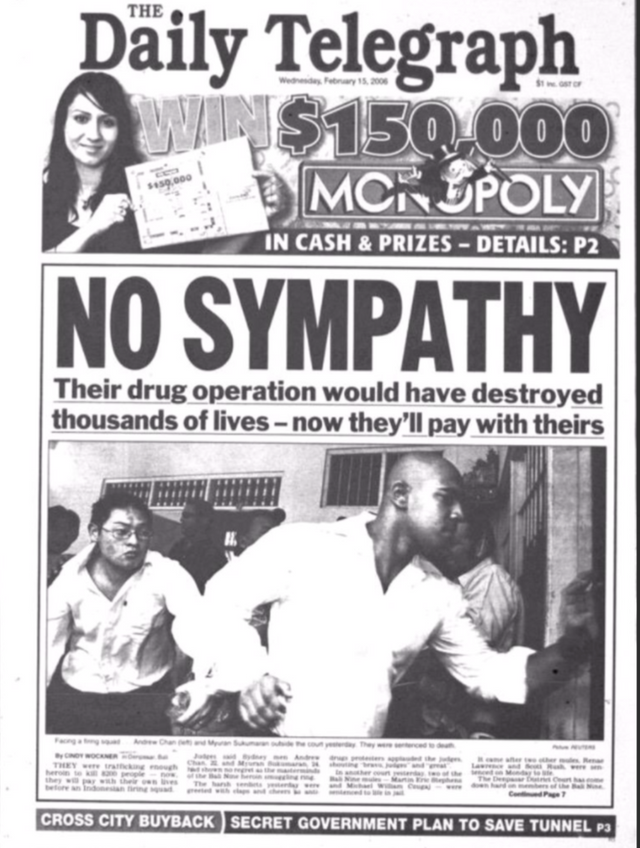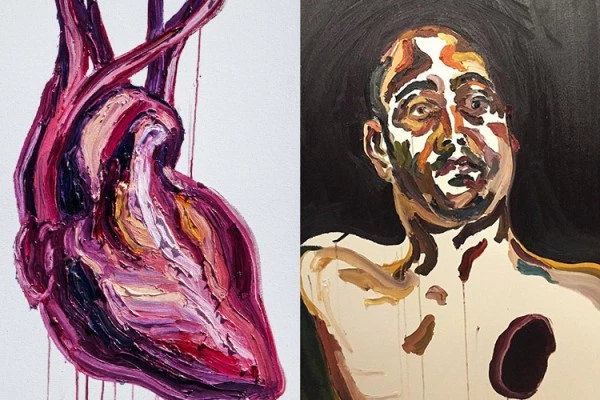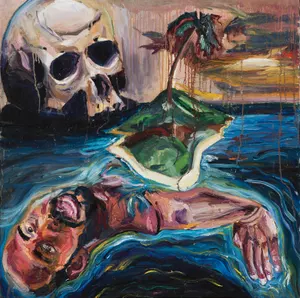A Quality of Mercy: A Response to Ecotrain's QOTW
The following is a response to @ecotrain's question of the week, which asks a threefold question:
- Is the death penalty the epitome of hypocrisy?
- Does an 'eye for eye' have a place in the modern age?
- What kind of message does this send to society?
As usual, it's a big one, and I'm not even sure I'm entirely satisfied with the answer below. I could keep writing for a long time as there are many intricacies I couldn't cover. Law, media, politics, human rights - this is not something we can possibly cover in one steempost, but by all engaging with the questions, maybe we can learn a little, or at least contribute to a global awareness of what all this means.
You can find @ecotrain's invitation to write here.
The quality of mercy is not strained.
It droppeth as the gentle rain from heaven
Upon the place beneath. It is twice blest:
It blesseth him that gives and him that takes.
Such says Portia in the Venetian Court of Justice in Shakespeare's play 'The Merchant of Venice', begging Shylock for mercy. The bard held mercy in high esteem - yet, given the calls for blood from our society for anyone who does a crime, you'd think mercy is a quality that no longer exists in our world.
In 2015, two members of the Bali Nine, Andrew Chan and Myuran Sukumaran, were executed by Indonesian firing squad. Convicted drug traffickers, they were both shot dead on the prison island of Nusakambangan, with only priests to witness it. That year I fought with my husband who 'didn't care, because there's nothing I can do about it', as I couldn't leave it alone, so devastated I was that they could execute two men to prove a political point and to uphold a judicial system that was cruel and arbitrary. I speak of this example because it's most raw to me, and this month Renae Lawrence, the only member of the Bali 9 to be released from jail, will be set free after being caught at Bali airport with heroin strapped to her body. The group were attempting to bring in 8.2kg of heroin from Bali to Australia in defiance of laws that explicitly state that the death penalty is the punishment that will fit that particular crime.
Romy Vager, in the song 'The Quality of Mercy' in homage to Shakespeare's couplet, sings of the moments before Sukumaran and Chan's death, as Australia waited for some last minute reprieve that never came. Please listen to the song as you're reading - it is powerful stuff.
The first moments of the song begin with Sukumaran's shock and numbness about his pending execution:
Guess what, it's pretty unfair
They're gonna give me the electric chair
I thought that someone would've changed their mind
But seems I've got about an hour's time to be
Staring at the ceiling, feeling numb
I'm thinking about the readers of the Herald Sun
Who say that I am evil, they say, "Hurry up, get on with it"
You get what you get, what you get, what you get.
This was the argument of many: 'you get what you get' - an 'eye for an eye' mentality that has been part of a justice system that inherently hypocritical, cruel and barbaric (the Herald Sun is a mainstream, Murdoch newspaper known for a particular readership). Those calling for the death penalty lacked an imagination to ask themselves: what if this happened to my son? To me? What would I ask for? Would I deserve a second chance? What were the circumstances that led the men to their crime, and have they made use of the time in prison to do good in the world? They lacked the ability to see that whilst they raged about others ignorance, cruelty and barbarism, that they were doing the same thing themselves.

Vamer sings:
Beth Miller from Malvern writes:
"This execution doesn't make things right!"
She'd rather see me drawn and quartered
After a bout of Chinese water torture
She says, "Everybody is so PC
If drugs make you suffer, then so should we"
However, these are dangerous idioms in a world that needs empathy and understanding. The song ends with Vamer screaming: 'there's no evil in me':
And guess what? I'm going to die
I thought it over, I don't know why
We never even met before
But you want first dibs at my corpse
Oh well, if it makes you feel better
You can open me up
You can dig forever
You won't find what you're looking for
There's no evil in me
There's no evil in me
There was never any evil in me
There's no evil
Evil suggests that it was their inherent nature that led them to be drug king pins, as if the little boys who were loving sons and brothers and uncles had been born with the intent to cause harm to others or were incapable of redemption. Sometimes life takes you in different directions - the Bali 9 were not necessarily driven by malice, but by thoughtlessness, greed, and ignorance, and an inability to see what the consequences of their crime might be. Having been caught, they started making up for it. Some might be cynical about this but I don't believe there's any point in going down that road - the fact when terrible things occur, it's what happens afterwards that matters.
We must remember that people make mistakes, even the people we love - and if we can forgive those we love, we must forgive those we don't, too, because what does it say about us as a society if we only care for our nearest and dearest? Everyone deserves a second chance.
Journalist Adam Gatrill wrote that initially he had no care for how the men ended up - his brother had died of a drug overdose, and he felt too that 'you get what you get'. Yet covering that story, he found that both men were terribly sorry for what they had done and had spent their years in prison making up for that. Whilst many believed this was an act for the courts, there were so many who lived and worked with them that said otherwise - both men wanted to make a 'positive contribution to the world'. Even Gatrill believed they deserved, like anyone, a second chance. Sukumaran wasn't asking for release, just for a chance at life, admitting he'd been 'thoughtless and ignorant', not thinking about the consequences of his actions.
Sukumaran did do good things with his life in a prison known for corruption, drugs and violence and a drug trade controlled by the police and army. Part of the reason they were in jail was because they were small time crooks who couldn't pay the fine as they exported drugs from the country (not imported as many falsely believed, and worse, the Australian Federal Police were said to have co-operated with Indonesian police in apprehended them, knowing that Indonesia has the death penalty - a reputation that the AFP have been trying to make up for since 2010). He stood up against drugs in the prison, beginning an art workshop and trying to give inmates an alternative in their lives after having overcome heroin addiction himself in prison. Here was a man who had worked hard to redeem himself and offer something back. The two men had begun a journey that started by leading others to destruction, but instead, were transformed - most of the nation were horrified that despite their desire to make good, that they were so brutally executed.
The brutality and horror of the men's deaths is incredibly hypocritical - it is government sponsored killing that ignores the possibility of redemption.
Some will argue that it costs the state too much money to keep them - 80 billion in America. Yet this country spends 598 billion on the military, effectively a killing institution. Others will argue that such sentencing is justified because it serves a greater good. Yet 'being tough on crime' is often a political platitude - a pretension of caring for a society that it oppresses through not providing opportunity for the demographic far more likely to commit crime. There is also no credible scientific evidence that the death penalty deters criminal behavior. In the case of drugs, there isn't a pattern that says it works country to country - Sweden has no death penalty and low rates of drug use, whilst Iran is the opposite - tough laws, high drug use. Since that very public execution, there's been many more convicted of drug smuggling.

There is also the problem of a broken judicial system that is inherently biased - consider Sukuraman's argument that had he been from a good family in Indonesia or a policeman or part of the army, he wouldn't have been convicted in the first place. Many people on death row, particularly in America, are mentally ill - one in 10 since 1977, according to Amnesty International and the National Association on Mental Illness, and thus can't participate in their trials in meaningful ways, and may influence a jury by being disengaged or without feeling or even medicated. This applies to race too - black people are far more likely to end up on death row than white, particularly if their victim is a white female. Black jury members will often be struck off in favour of white in these cases. It's a fallible system that makes clear mistakes, sending innocent people to their deaths as well as giving a higher punishment to someone who could be rehabilitated and given a second chance. If justice is meant to be 'fair' in the way that the scales of 'eye for an eye' line up, then something is going terribly wrong here.
Certainly, if were were to apply the principle of 'eye for an eye', there are a lot of politicians that should be placed in a compound somewhere and have drones come down and rain hell upon them, or have their huge paychecks taken from them so that they can live in abject squalor with little support. Seem ridiculous? Just think a little harder about what retributive justice actually means.
The lesson that should be taught to society is that every single life matters. That killing someone doesn't make up for any wrongs, perceived or otherwise, and can cause far more pain than it may intend to remove from society.
The last person to be executed in Australia was Ronald Ryan in 1967, for the shooting of a prison guard during an escape. This was the last hanging in Australia due to public outcry. A call for capital punishment is fine in the abstract - hang 'em, we cry - but when it is happening right in front of you it's a different story. The public outcry over Ryan's capital punishment was huge, not least because Bolte, the Victorian premier at the time, was asked what he was doing while he was hanged and his response, callously, was "one of the s's, I suppose, a shit, shower or shave". It was a political move, many argued, because - you guessed it - the 'tough on crime' argument. Seven of the jurors wrote to Bolte’s cabinet pleading for mercy, arguing that if they'd known he'd get the rope, they would have gone for manslaughter. His daughters had to change their name, change schools - famously, he wrote them: “Goodbye, my darlings, and may you get the love and luck you all deserve. I am not afraid, and I think the credit is largely yours. Lovingly yours, Dad.”. In prison for petty theft and desperate to see his wife and daughters, he devised an escape. Again, I find myself feeling deep empathy and horror at the political processes that not only murdered a human being, but sent ripple effects through his family. It wasn't just the prison guard's family that suffered due this event.
As I write this, two Australians are in jail in Thailand for importing meth. There will be those that cry 'let them hang', but if we're to remain proud of ourselves as a country supportive of human rights, we have to quash any feelings of retribution and remember that every second life is important. Every single human being is capable of rehabilitation and redemption.

great answer really i think.. my god if we spent what we do in murder war and prisons on actually helping, what a different world it would be!
Yes for sure. And the military as well. Hypocritical that they go around murdering people with a massive budget and then don't implement a good plan to make a better society.
Posted using Partiko Android
michael jackson sang it so well.. so simple
"they dont care about us!"
amazing song really!
To listen to the audio version of this article click on the play image.

Brought to you by @tts. If you find it useful please consider upvoting this reply.
Nice take on this can of worms.
But the one thing bothering me,
isn´t Romy actually a she?
I can always rely on you to correct me whenever you stop by. Damn that one personal pronoun in an entire post of people. Thanks.
Congratulations! This post has been upvoted from the communal account, @minnowsupport, by eco-alex from the Minnow Support Project. It's a witness project run by aggroed, ausbitbank, teamsteem, someguy123, neoxian, followbtcnews, and netuoso. The goal is to help Steemit grow by supporting Minnows. Please find us at the Peace, Abundance, and Liberty Network (PALnet) Discord Channel. It's a completely public and open space to all members of the Steemit community who voluntarily choose to be there.
If you would like to delegate to the Minnow Support Project you can do so by clicking on the following links: 50SP, 100SP, 250SP, 500SP, 1000SP, 5000SP.
Be sure to leave at least 50SP undelegated on your account.
I really find it scary that drug trafficing could result in dealth penalty it gave me the bad kind of shivers reading this, i couldnt fully process it. most of time with drug traffcing the ppl are just mules for a bigger option and that the mules get the penalty but the problem still continues.
Exactly. And the police and government KNOW this. Plus that Indo prison is FULL of drugs and.corruption so what is the point of sending people there and then shooting them? Solves nothing. I kept getting shivers whilst researching @celestialcow and the lead up to that execution was particularly harrowing. Thanks for your contribution x